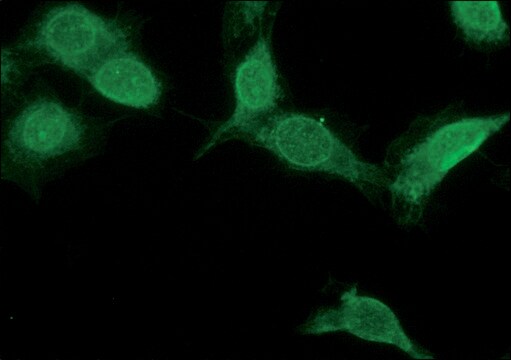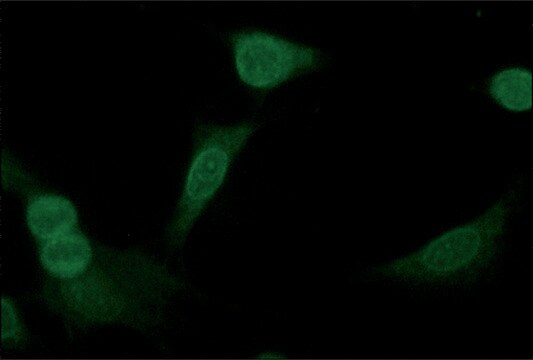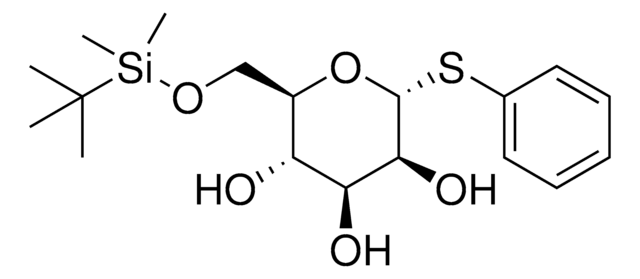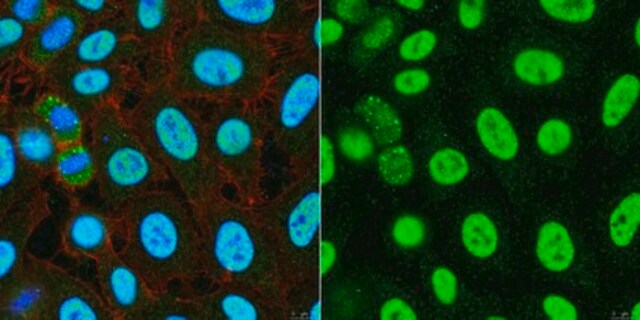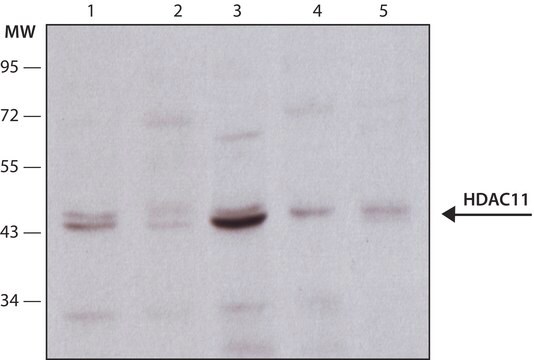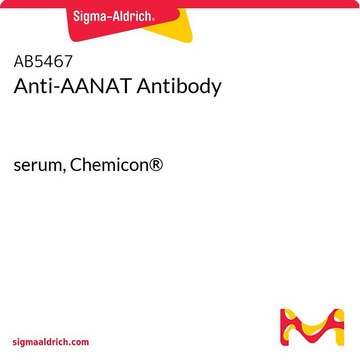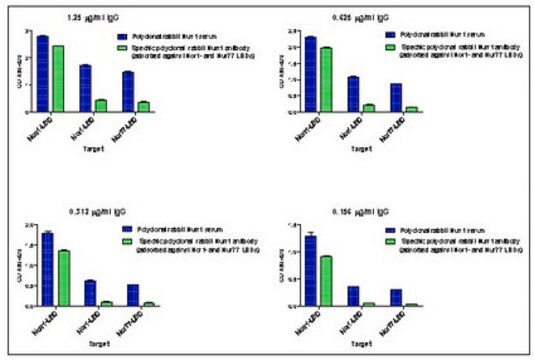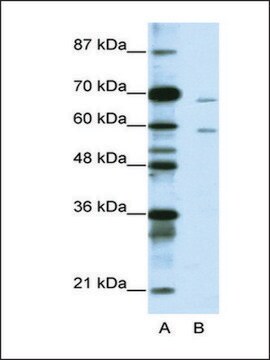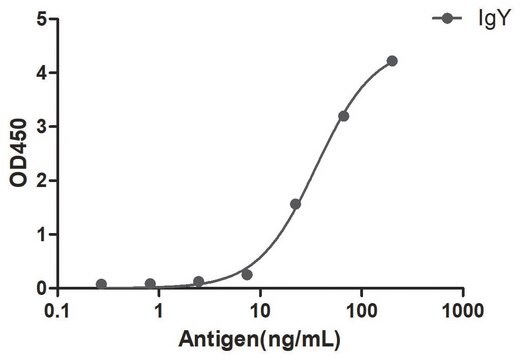AB5778
Anti-Nurr1 / NOT1 Antibody
Chemicon®, from rabbit
Sinonimo/i:
Anti-HZF-3, Anti-NOT, Anti-NURR1, Anti-RNR1, Anti-TINUR
About This Item
Prodotti consigliati
Origine biologica
rabbit
Livello qualitativo
Forma dell’anticorpo
affinity purified immunoglobulin
Tipo di anticorpo
primary antibodies
Clone
polyclonal
Purificato mediante
affinity chromatography
Reattività contro le specie
mouse, human
Produttore/marchio commerciale
Chemicon®
tecniche
immunohistochemistry: suitable
western blot: suitable
N° accesso NCBI
N° accesso UniProt
Condizioni di spedizione
dry ice
modifica post-traduzionali bersaglio
unmodified
Informazioni sul gene
human ... NR4A2(4929)
Categorie correlate
Specificità
Immunogeno
Applicazioni
Neuroscience
Developmental Neuroscience
Neurodegenerative Diseases
Immunohistochemistry: 1:200-1:1,000.
Optimal working dilutions must be determined by the end user.
Stato fisico
Stoccaggio e stabilità
PREPARATION AND USE:
To reconstitute the antibody, centrifuge the antibody vial at moderate speed (5,000 rpm) for 5 minutes to pellet the precipitated antibody product. Carefully remove the ammonium sulfate/PBS buffer solution and discard. It is not necessary to remove all of the ammonium sulfate/PBS solution: 10 μL of residual ammonium sulfate solution will not affect the resuspension of the antibody. Do not let the protein pellet dry, as severe loss of antibody reactivity can occur.
Resuspend the antibody pellet in a suitable biological buffer such as PBS or TBS (pH 7.3-7.5) to a final concentration of 1.0 mg/mL. For example, to achieve a 1.0 mg/mL concentration with 50 μg of precipitated antibody, the amount of buffer needed would be 50 μL.
Carefully add the liquid buffer to the pellet. DO NOT VORTEX. Mix by gentle stirring with a wide pipet tip or gentle finger-tapping. Let the precipitated antibody rehydrate for 1 hour at 4-25°C prior to use. Small particles of precipitated antibody that fail to resuspend are normal. Vials are overfilled to compensate for any losses.
The rehydrated antibody solutions can be stored undiluted at 2-8°C for 2 months without any significant loss of activity. Note, the solution is not sterile, thus care should be taken if product is stored at 2-8°C.
For storage at -20°C, the addition of an equal volume of glycerol can be used, however, it is recommended that ACS grade or higher glycerol be used, as significant loss of activity can occur if the glycerol used is not of high quality.
For long-term storage at -70°C, it is recommended that the rehydrated antibody solution be further diluted 1:1 with a 2% BSA (fraction V, highest-grade available) solution made with the rehydration buffer. The resulting 1% BSA/antibody solution can be aliquoted and stored frozen at -70°C for up to 6 months. Avoid repeated freeze/thaw cycles.
Note legali
Esclusione di responsabilità
Non trovi il prodotto giusto?
Prova il nostro Motore di ricerca dei prodotti.
Codice della classe di stoccaggio
12 - Non Combustible Liquids
Classe di pericolosità dell'acqua (WGK)
WGK 2
Punto d’infiammabilità (°F)
Not applicable
Punto d’infiammabilità (°C)
Not applicable
Elenchi normativi
Forniamo informazioni su eventuali restrizioni prevalentemente per i prodotti chimici. Per altre tipologie di prodotto siamo in grado di fornire soltanto informazioni limitate. Nessuna segnalazione significa che nessuno dei componenti è citato in un elenco. È dovere dell’utilizzatore assicurarsi che il prodotto venga impiegato in maniera sicura e a norme di legge.
EU REACH Annex XVII (Restriction List)
Certificati d'analisi (COA)
Cerca il Certificati d'analisi (COA) digitando il numero di lotto/batch corrispondente. I numeri di lotto o di batch sono stampati sull'etichetta dei prodotti dopo la parola ‘Lotto’ o ‘Batch’.
Possiedi già questo prodotto?
I documenti relativi ai prodotti acquistati recentemente sono disponibili nell’Archivio dei documenti.
Il team dei nostri ricercatori vanta grande esperienza in tutte le aree della ricerca quali Life Science, scienza dei materiali, sintesi chimica, cromatografia, discipline analitiche, ecc..
Contatta l'Assistenza Tecnica.